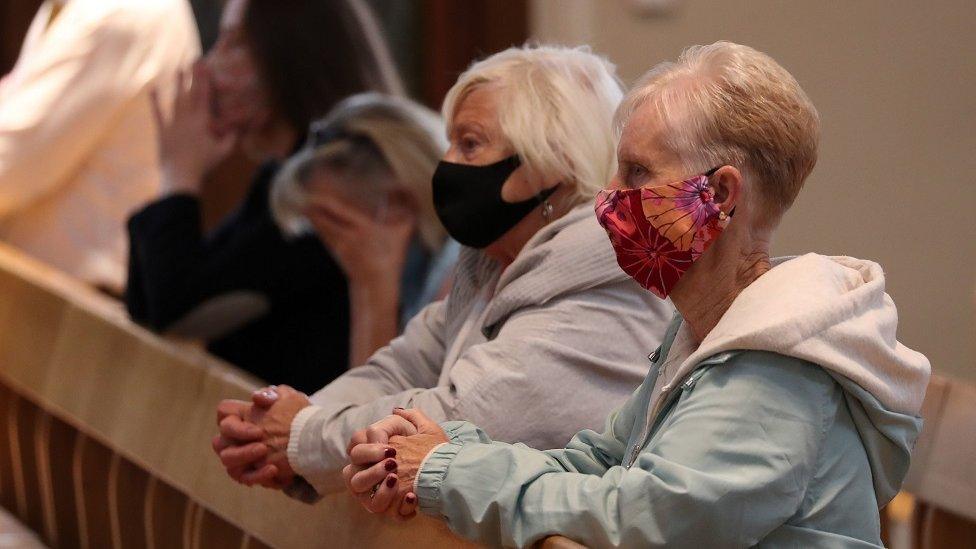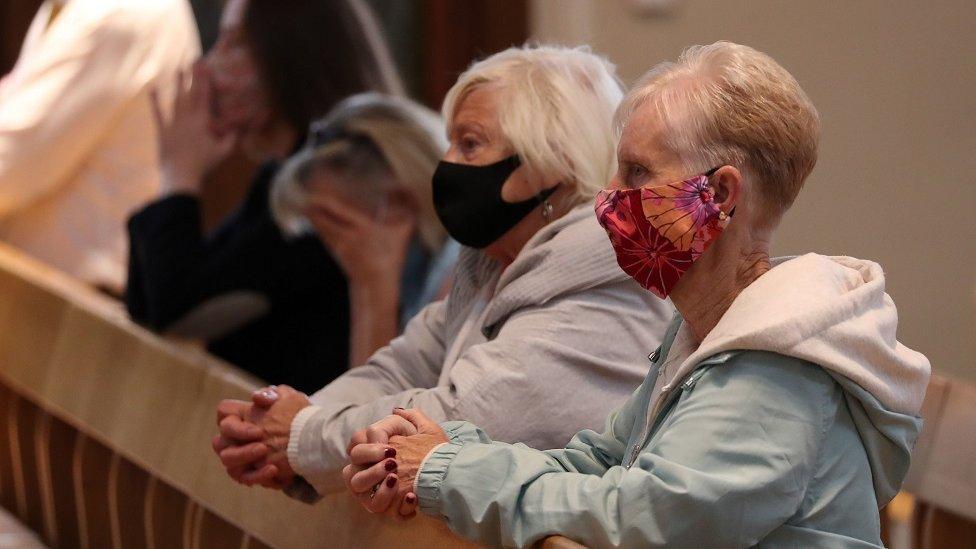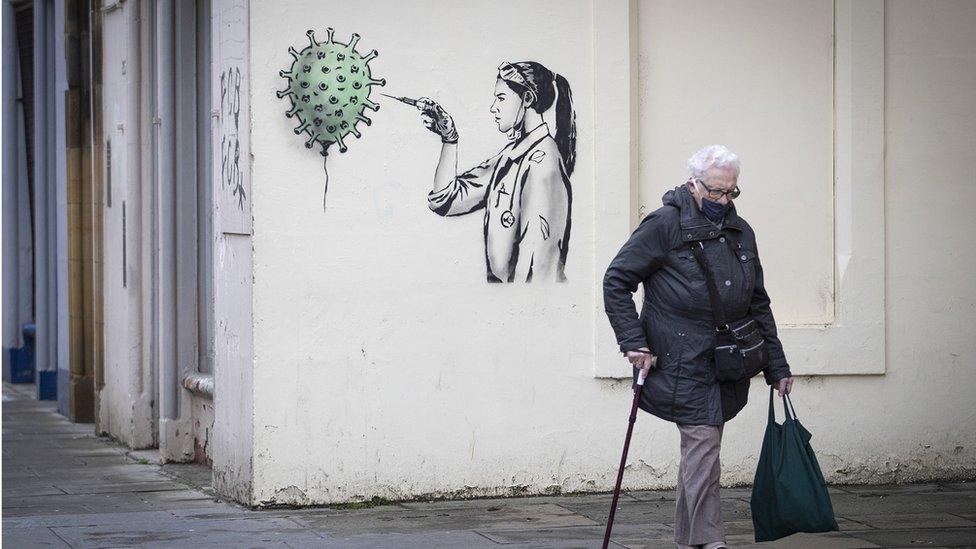Church closures 'unfair' and 'lacking evidence', say bishops
- Published

Place of worship in Scotland will close from Friday with the exception of funerals
Church leaders have criticised the Scottish government's decision to close places of worship as "unfair".
Scotland's Catholic Bishops said public worship was a human right and provided an "essential contribution" to people's spiritual welfare.
The organisation highlighted that the UK government had chosen not to take similar measures.
The first minister said the decision was taken to reduce the places people have been coming together.
Church services have been taking place in Scotland since July, after an initial closure last March.
They will shut again on Friday with the exception of funeral services (up to a maximum of 20 people) and weddings (maximum of five).
'Disappointment'
In a statement released on Tuesday, Scotland's Catholic Bishops said they were "perplexed" by the measure when churches had taken "stringent measures" to ensure public safety.
They said: "No evidence has been forthcoming to justify the inclusion of places of worship as sources of infection. Without such scientific evidence these restrictions will appear to Catholics to be arbitrary and unfair.
"Moreover, a significant number of other sectors similarly restricted last March alongside public worship - such as construction, manufacturing and elite sports - have now been left free to continue in operation.
"We are very aware of the disappointment these closures will cause not only to our own Catholic community, but to many of our fellow Christians and those of other faiths in Scotland."
In England and Wales communal worship and funerals can continue, subject to limits on attendance. Weddings are allowed in "exceptional circumstances" with up to six people.
The Northern Ireland executive is meeting to discuss further coronavirus rules.
During her daily media briefing, Nicola Sturgeon acknowledged the difference in decision-making, but said Scotland had decided to act "much earlier" in the curve of this wave.
"I know how horrible, tough and distressing this will be for many people," she said. "All I would ask people to understand is that none of this is being done lightly. I have no interest in closing anywhere if it is not necessary to do.
"We all have a tendency to look for what's the evidence about why the virus is transmitting here or there, or not here but there. Actually it's much more straightforward than that. This virus transmits when people come together and therefore we have to reduce as far as possible the places where people are coming together."
'Even more difficult' to follow rules
Ms Sturgeon also mentioned her "momentary lapse" when she was photographed without a face mask at a wake in December.
The Scottish Sun published a picture of the first minister standing talking to three people at a social distance, but with her face uncovered.
She said: "I've got my own experience of how there are some settings where it's even more difficult to do all of this, partly because of the emotion and the nature of them."
Scotland's national clinical director Jason Leitch said he had met with faith leaders across Scotland "consistently" since March.
"Throughout this pandemic it has never been wrong to act hard and fast, never," he added.


- Published19 July 2020

- Published5 January 2021
